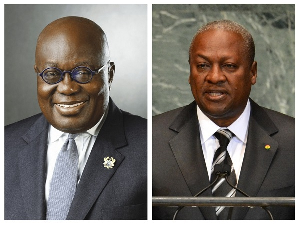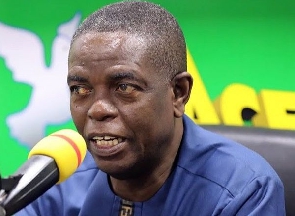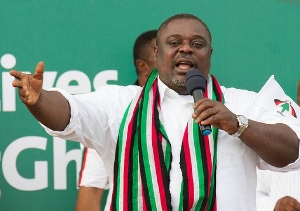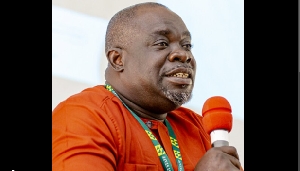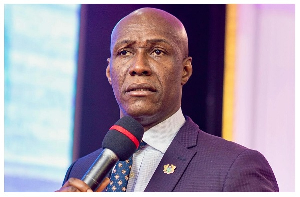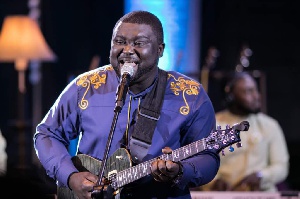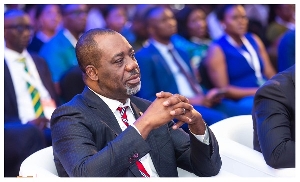 Some police officers [File photo]
Some police officers [File photo]
Many argued that neo-patrimonial politics in Africa and Ghana in particular, has largely impacted the provision of security worldwide.
State breakability or weakness coupled with failure in the post –independence Africa, subsequently brought new approach to the security orbit in the continent. Weak state institutions which continues to persist in the 21st century Africa and inability of the state to cater for the security needs pave way for non-state actors to become the obvious choice of security provision.
These non-state actors are what this opinion piece described as ‘soldiers of fortune’. Their self-acclaimed style is what many security practitioners and political scientists called “vigilantism”.
Vigilantism scientifically described as an organized effect by a group of ordinary citizens to enforce norms and maintain law and order in their communities when they perceive that the state through the police have failed to provide adequate security to the citizenry. Furthermore, vigilantism is seen as activities usually involving informal organized, non-state policing groups to fight crime outside of the legitimate means of law enforcement due to the inability of security agencies to maintain law and order.
The conflict of interests between the conventional security agencies like the police and vigilante actors often results in violence as seen in the cases of Dozos of (Cote d’Ivoire) and Kamajor (Sierra-Leone) etc.
The phenomenon of vigilantism is seen with varying degrees all over the world. The example reality in many African countries is that the state is often not the only player when it comes to security provision, and in instances where the state is weak, absent, unable or unwilling to provide basic security services, local actors and informal networks such as community watchdog groups, religious and community leaders, private security companies and vigilante groups becomes the main providers of security. For example, security services within the Mano River areas in West Africa is provided by informal sector (non-state actors).
The patron-client network bases of these groups mainly support the interest of a small group of elites to the disadvantage of the general population.
The colonial era saw security being conceptualized to mean the use of state security was (is) for the interest of state and not general population, and this has greatly narrowed the services by state security giving way to various forms of informal sector security providers.
The vigilante groups in their patron-client network, generate powers from bourgeoisie masters, including political elites, businessmen, and powerful or influential people. They often use them as body guards for the protection of self and properties. They are usually macho- in physique and most of these groups are unemployed and uneducated youths living in poverty stricken environment.
With a feel to survive and meet their needs they are easily convinced with material incentives and promises by their masters to engage in activities which are often probable threats to peace because they feel society has failed them. Yet, political vigilante groups have become the alternative to the state in providing security in Ghana.
POLITICAL VIGILANTISM IN GHANA
Historically, vigilante groups in Ghana date back in the 1960’s with the formation of groups like the Action Troopers of the National Liberation Movement (NLM) and the Action Troopers of the Convention’s People’s Party (CPP). These groups are perceived to have set the pace for the activities of political vigilantism in Ghanaian politics.
Though the initial intention of these groups was to propagate the ideas of political elites, including the protection of property rights of opposition and to champion political desire for Federalism as opposed to Unitary governance, it later was characterized with violent activities in 1954 through 1956. Such situation is not different from what is being experienced in modern day Ghana with the activities of political vigilante groups such as Kandahar Boys, Bolga Bull Dog, Azorka Boys and the Invincible, etc.
In recent times, the Ghanaian political arena has witnessed organized armed groups deployed as private militias to safeguard electoral fortunes of political parties, where violence tactics are employed. A starting point of their violent operations might be to recall all the points of violence and hooliganism that characterized the 16 by elections held since 1992, including the Talensi and Atiwa by-elections.
The nefarious activities of vigilante groups have generated a lot of debates among security practitioners and political actors in Ghana. The attempt by the current President of Ghana, Akufo Addo to pass the vigilantism or other offences Act into law has been met with fierce criticization because the ‘will’ of political actors to allow the bites is non-existent.
In many African countries, especially in the Sahel regions, we have witnessed how these groups have transcended from an ordinary vigilante groups into a fierce militia groups terrorizing and destabilizing democratic governance system. The emergence and rise of vigilante groups in response to the regularly theft of ballot boxes, violence and the inability of the conventional security agencies mainly the police service to provide adequate security leaves much to be derived as Ghana goes to the polls in December 2020.
Vigilante groups of the ruling government continue to display opulence and visit mayhem on key actors in the political space. It is against this background that we ask the question: Will Ghana pass the test in the 2020 poll, given the growing insecurity under a sitting President touted as a human rights activist of all time in the history of Ghana’s political dispensation?
It is crucial and evident that the activities of vigilante groups could be calamitous and devastating to Ghana’s democratization process, especially in terms of election violence. The police service is handicapped in controlling the situation due to excess control of the police by political leaders and the patrimonial democracy we practice as a country. So far, the Ghana police service has responded severally to the rising spate of political vigilante activities by giving strong indications of its intent to disband all vigilante groups that provide security to political parties, but this has proven futile not even with the passage of the vigilante bill into law by parliament.
In order to secure a sustainable solution to this canker, political parties must be open or transparent about their engagement of any group or persons for the purpose of providing security to their functionaries during elections must be registered with the Ghana Police Service. This also dependent on the neutrality and independence of the police administration.
Ensuring peaceful elections and consolidating our democratic gains remains the utmost responsibility of all stakeholders, including civil society.
Consequently, a more sustainable and long term effort to restore this problem involves poverty alteration and skilled development programmes aimed at creating viable employment opportunities targeted at the vulnerable youths who are at the mercy of political exploitation.


